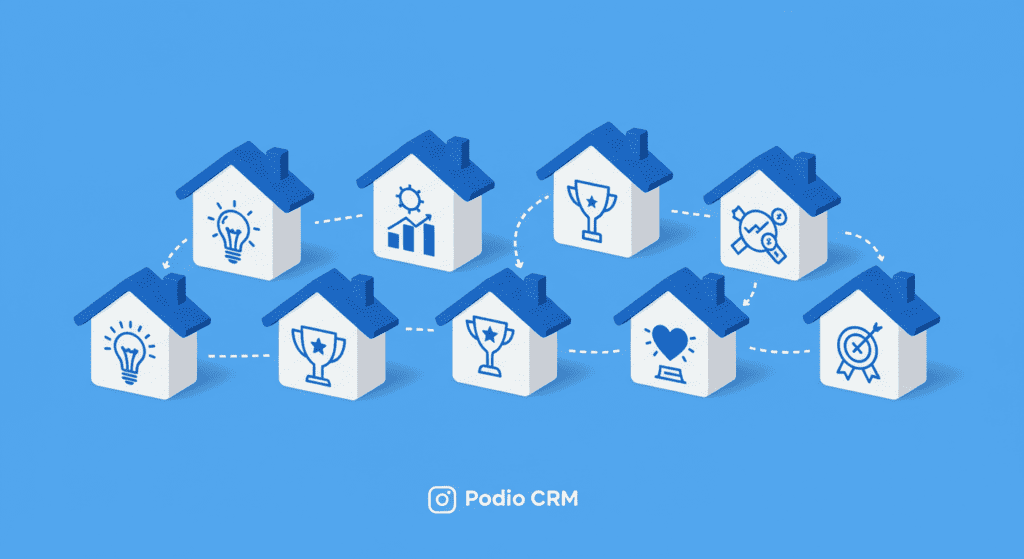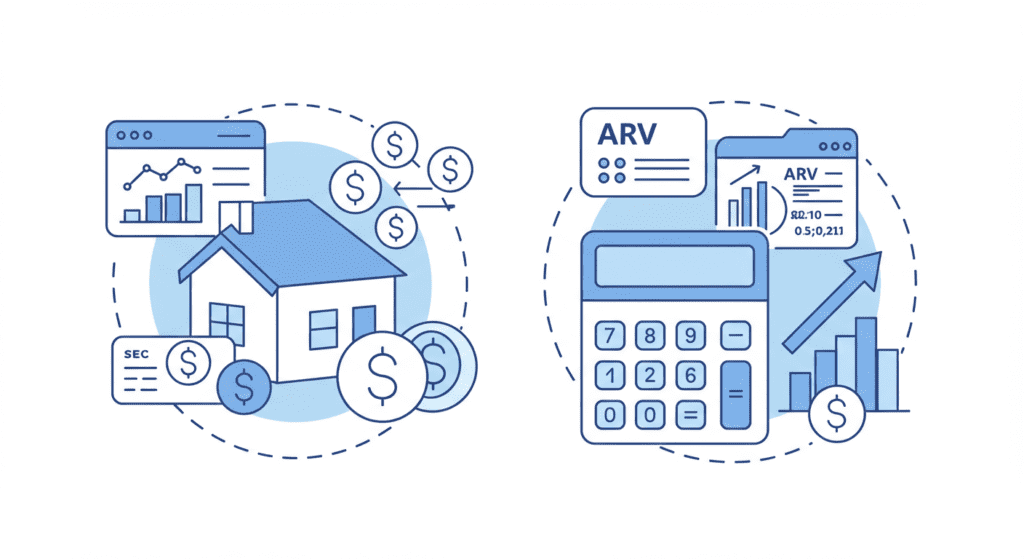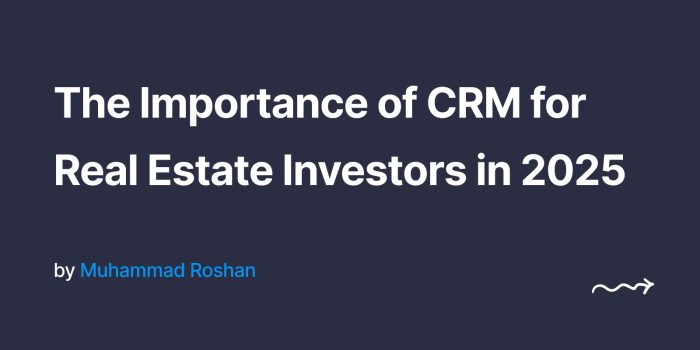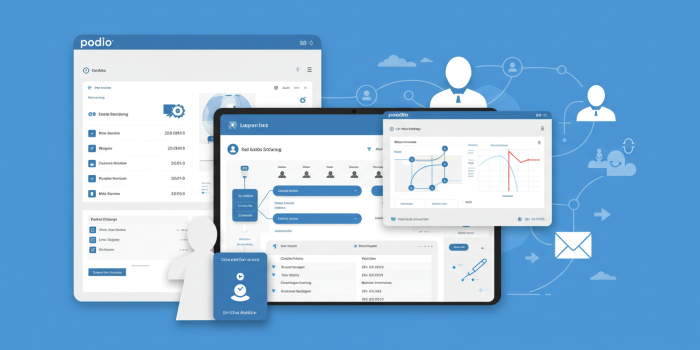Getting leads is easy. Converting them is not. Anyone in the real estate wholesaling business knows this truth. You spend money, time, and energy generating seller leads, only to realize most of them won’t go anywhere. That’s the harsh reality. If you don’t qualify sellers early, you’ll waste countless hours chasing dead ends. It’s not just frustrating—it’s expensive. So, how do top wholesalers separate tire-kickers from real opportunities? The answer lies in systems, speed, and asking the right questions at the right time. This is where REI Podio CRMs steps in with solutions that change the game for real estate professionals.
When you structure your real estate wholesaling business with proper systems, especially using a tool like Podio for real estate, everything becomes smoother. You’ll identify who’s truly motivated and who’s just “thinking about selling.” You won’t need to rely on guesswork. Instead, you’ll use data, forms, scripts, and automations that do the heavy lifting. REI Podio CRMs helps wholesalers like you qualify leads automatically using customized seller intake forms and follow-up workflows. Within minutes, you know if someone’s serious or just curious. That alone saves you dozens of hours every week. If you’re still qualifying sellers by memory or sticky notes, you’re missing deals. Plain and simple.

Motivated Sellers Are the Foundation of Your Business
Every deal you close starts with one thing: a motivated seller. Without them, your contracts are worthless. It doesn’t matter how slick your website looks or how big your buyer list is. If you’re talking to unmotivated sellers, you’re wasting time. The problem is, not every seller who fills out your form or calls your number is ready to make a deal. Some just want to know what their house is worth. Others think they’re sitting on a gold mine. But your job isn’t to convince—it’s to qualify. And that means you need a system that filters out the fluff before it eats up your schedule.
This is where Podio CRM shines. Built to support the real-time decisions wholesalers make daily, Podio can be customized to handle your lead flow from start to finish. And with REI Podio CRMs, that customization is already done for you. Their pre-built workflows score and segment leads based on seller answers. Motivation, timeline, condition, price flexibility—it’s all tracked automatically. This helps you and your team focus on real opportunities instead of wasting time on wishful sellers. The entire real estate wholesaling business process becomes faster and more reliable. Your team doesn’t need to guess what to do next because the system tells them. That’s what efficient wholesaling looks like.

Podio for Real Estate: The Right Tool for Seller Screening
Many wholesalers jump into CRMs expecting miracles, only to end up with more confusion. What they need isn’t just a CRM—it’s one built with wholesaling in mind. That’s why Podio for real estate is such a powerful choice. Unlike generic platforms, Podio adapts to your business instead of forcing you to change how you work. You can create seller intake forms that walk leads through a qualifying script, capturing key details like motivation, property condition, asking price, and urgency. These forms can be linked to your website, Google ads, or even your cold calling team’s daily sheets.
Using REI Podio CRMs, your Podio system can also rank leads using weighted scoring. This tells your acquisition manager exactly who to call first. You no longer waste time guessing. If a seller says they need to sell in 30 days, are flexible on price, and the house needs repairs, that’s gold. The CRM will flag it and notify your team instantly. Meanwhile, those who just want to “see what it’s worth” are set aside for future follow-up. This structure reduces lead burnout, keeps your pipeline full of real opportunities, and improves conversion. No other CRM for real estate wholesalers gets this specific or practical. And that’s why wholesalers who use Podio with the right setup consistently outperform those who don’t.

QPodio Customization Brings Structure to Chaos
Ask any wholesaler juggling 20+ leads a day, and they’ll tell you—things get chaotic fast. If you’re not on top of every conversation, task, and timeline, deals slip away. That’s why Podio customization is critical for managing lead flow. With the right setup, Podio becomes the control center of your wholesaling business. You can build custom dashboards that show hot leads, contracts pending, properties under inspection, and follow-ups due today. It’s all color-coded, searchable, and updated in real-time. This level of clarity turns your daily grind into a manageable system.
REI Podio CRMs takes this a step further. They give you fully built templates that plug straight into Podio. You get seller scripts, lead stages, follow-up sequences, and KPIs—ready to use. No guesswork. If a seller misses your call, the system schedules a text reminder. If they reply, the CRM notifies your team instantly. Every touchpoint is tracked, and no lead is left behind. For real estate wholesalers, this means you stop depending on memory or scattered tools. You get one place where everything happens, and it’s all focused on qualifying and converting motivated sellers. That’s what separates thriving wholesalers from the ones who burn out. Systems win. Chaos kills.

Customized CRM Helps You Work Smarter, Not Harder
When you’re scaling a real estate wholesaling business, one deal here or there isn’t enough. You need volume. But volume without systems equals disaster. This is where a customized CRM gives you the edge. It allows your team to manage leads, follow-ups, appointments, offers, and closings—all in one place. Instead of bouncing between spreadsheets, texts, email, and sticky notes, everything lives in the CRM. It’s faster. It’s cleaner. And most importantly, it’s repeatable. That means you can train a VA or acquisition manager in days, not weeks.
REI Podio CRMs specializes in making your Podio setup not just functional, but strategic. They understand what real estate wholesaling requires: speed, precision, and consistent communication. With their CRM, you can create multiple seller types, auto-tag properties, and instantly share updates with your team. You’ll also reduce human error. No more missed appointments or forgotten follow-ups. The system tracks it all, reminds you when needed, and logs every action. That’s how pros operate. They don’t just work harder—they work smarter. And they use tools like Podio, backed by real experience and proper customization, to win in competitive markets.

ABest CRM for Real Estate Wholesalers & Investors
There’s no shortage of CRMs out there. But for wholesalers and investors, most options fall short. They either require too much setup, aren’t flexible enough, or simply don’t understand the pace and pressure of the industry. The best CRM for real estate wholesalers & investors needs to do more than store data. It must qualify leads, automate follow-ups, manage your team’s tasks, and show clear ROI. Podio does that—and more—especially when combined with expert setup from REI Podio CRMs. You get speed, clarity, and full visibility over every deal in your pipeline.Real estate investors also love Podio because it grows with them. Starting with a single market? Podio handles it. Expanding into multiple metros with a full team? No problem. With smart permissions, your VA sees only what they need, while your acquisition lead gets the big picture. Everything is synced and secure. Plus, it integrates with tools like CallRail, RingCentral, and Gmail, bringing all communication into one system. That means less chaos and more control. If you’re serious about scaling your real estate wholesaling business, there’s no better platform to build on—and no better partner than REI Podio CRMs to build it with you.

REI Podio CRMs: Systems That Make Wholesalers More Profitable
Most wholesalers hit a wall when their lead flow grows. Without structure, they burn out. That’s why systems aren’t just helpful—they’re necessary. REI Podio CRMs delivers those systems, already built and tested by people who know the business inside out. From seller intake to offer management, follow-ups to contract tracking, their CRM helps you handle it all without the stress. This is more than technology—it’s peace of mind. You close more deals without working more hours. You manage more leads without hiring more people. And you finally built a real estate wholesaling business that runs like a business.
At least five times in your first year, you’ll hit a moment where you either scale up or break down. The ones who scale? They use tools like Podio for real estate with the structure that REI Podio CRMs provides. Every task has a purpose. Every lead has a status. Every deal has a path from start to finish. That’s how you grow from hustling one deal at a time to closing multiple contracts per month. And that’s what makes REI Podio CRMs not just a smart investment, but a necessary one.
Conclusion: Qualifying Sellers Shouldn’t Be Hard
If you’re tired of wasting time with unmotivated sellers, it’s time to upgrade your process. No more guessing who’s ready to deal. No more lost leads. No more broken workflows. Use a system that works. Use Podio CRM—customized for you by REI Podio CRMs. You’ll qualify faster, close more, and build a real estate wholesaling business that doesn’t burn you out. Whether you’re solo or running a team, these systems help you move smarter, not harder. Ready to stop chasing and start closing? The right CRM isn’t a luxury. It’s the foundation.









